Frequently Asked Questions
Do I need to be Jewish to attend a service?
No. We welcome visitors of all faiths.
When and where are services held?
We hold Shabbat services the 2nd and 4th Fridays of each month. We alternate between two services: a family shabbat service specifically tailored to families with young children, and a regular service. The schedule may change due to events or celebrations, so please see our list of upcoming events.
Services are held downstairs at the Westminster Presbyterian Church at 3990 West 74th Avenue in Westminster, Colorado.
You’re located in the basement of a church? Really?
We understand that a Jewish congregation sharing space with a church is a little unorthodox, even for a Reform congregation. We ask that you come to a service and see who we are and learn about our community even if our location may not be traditional.
Should I call ahead?
We appreciate you reaching out to let us know you’re coming. That way, we can welcome you and introduce you to our members. If you are unfamiliar with a Shabbat service we can also help you follow along.
Is it handicapped accessible?
Yes, there’s a ramp to the front door, and an elevator inside the building. Follow the signs once you’re inside. If we know you’re coming we’ll be happy to guide you.
What is proper attire?
We want you to be comfortable, but pajamas may be a little too comfortable. Some of our congregants wear suit and tie, while others wear jeans. Business casual (khaki pants and a button-down shirt) is a happy medium.
What if I have questions?
We pride ourselves on our community and welcoming attitude. You can ask anyone you see, and if we can’t answer your question, we’ll point you to someone who can, such as Rabbi Greg.
How long is a service?
Shabbat services are typically 1 hour, while the family Shabbat services are closer to 45 minutes.
Do I need to know Hebrew?
You do not need to know Hebrew to enjoy services. Every page has an English translation, as well as a phonetic transliteration of each prayer. You’re also welcome to read the commentary at the bottom of most pages.
What is a siddur?
A siddur is a book of prayers that we use during services. The siddurim (plural of siddur) will have prayers in both Hebrew and English.
What is an Oneg?
An Oneg follows just after service ends and is our time to celebrate Shabbat by being together as a community. The time is spent chatting and enjoying some refreshments and snacks.
What is a cantor?
The cantor leads the congregation in many of the prayers and songs, and assists the rabbi during services. Diane Firestone is one of CBT’s most treasured assets.
Can I ask the Rabbi questions?
One of the highlights of CBT is Rabbi Greg. He is very approachable and easy to talk to. He would be happy to answer any questions you have .
How do I address a Rabbi when speaking to them?
Rabbi or Rabbi Greg is preferred.
Do I need to become a member to keep coming to service?
A building relies on a strong foundation to support its weight. So too, CBT relies on membership dues and contributions to offset the real costs that allow CBT to function. And as is often the case, if everyone believes that someone else will do something, there’s a likelihood that the thing doesn’t get done.
Like any non-profit organization, we rely on the financial contributions of our members to offset operating costs. While membership is not a requirement for attending services, becoming a member opens the door to our community in a special way. In order to continue serving our community, we encourage you to consider membership.
How can I make a donation?
There are several ways to make donations. In addition to electronic payment options, we have envelopes available at services and you can also mail in your donation.
What does my contribution or dues help to accomplish?
Your contributions can be designated for specific subjects such as our religious school, books, Rabbi’s discretionary fund, etc. General contributions are applied to our operating costs to enable CBT to continue to serve our community.
What can I do to help and participate?
CBT values the active participation of our members in our educational, ritual and social life. It’s written right into our mission statement. There are many ways to become engaged in the community. Hosting an oneg, joining our book group or attending a Board meeting are a few easy ways to become involved, though there are many more.
What other activities does CBT offer?
We are always looking to expand our social activities and welcome feedback and programming ideas. We have adult education sessions, book group meetings, latke making events, etc.
Does CBT offer classes and if so what kind?
We offer monthly adult education sessions, and in the past, we’ve offered classes for learning Hebrew when there was a demand.
How long the community has been around
The origins of CBT go back to 1987. You can read more about our history
How can I pay my membership dues?
We offer several options for paying membership dues. CBT offers an electronic payment service through Vanco Payment Solutions. Electronic transfers or credit card payments can be set up at regular intervals including monthly, quarterly and annually. Just follow the Donate/Make a payment link on our website at the top of the page. Of course, you can also send a check to our mailing address.


